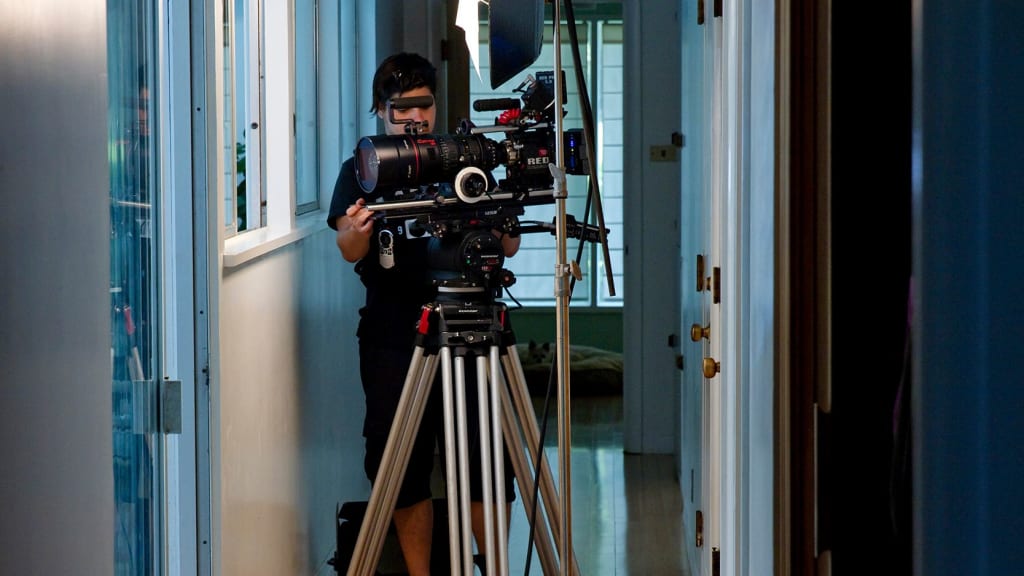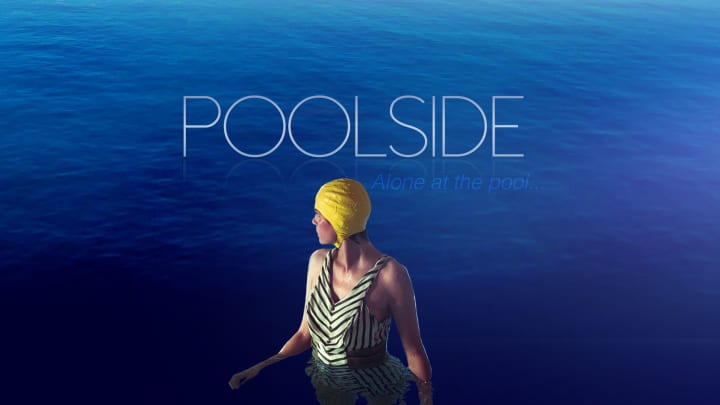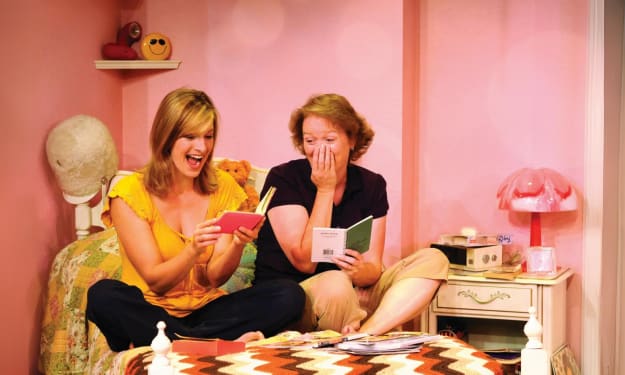Award Winning Director Alex Kinter: “I wanted to create a movie that was transcendentally honest and human. “
Alex Kinter, a rising talented filmmaker, recently received 10 prestigious awards for his outstanding thriller tragic short film Poolside. I had great pleasure interviewing Alex Kinter.

Alex Kinter is mostly well known for his outstanding work in cinematography, commercial film making and his recent short film Poolside. He received 20 international laurels for his tragic thriller short film.
From an early age, Alex was a great admirer of art and action sports. Gradually he built his expertise in graphics design and web development. Alex started his career as photographer, then a cinematographer, and gradually he started directing music videos, commercials and so on. He worked with renowned brands like Hublot, TopGolf Dallas, Mercedes Benz and many more.
As an award-winning director and cinematographer, Alex Kinter brings his unique and highly visual storytelling prowess to everything from digital photography and commercial video production to music videos and films.
Q: First of all, tell us how did you start your film career?
I started my professional career in photography. I learned how to shoot and develop film in a dark room at my high school, which opened up my eyes to picture making. Then soon after, I bought a Nikon DSLR and started Xander Photography, my first creative business. I was able to get bands, artists and business people interested in shooting press photos with me for their business. Soon after, I got some consistent gigs at various nightclubs in Dallas, but my thirst for creative work only grew more and more. I began to shoot models, private events, cars and advertising photos for a wide variety of companies and industries. Then, I decided to start giving videos a shot and bought my first real video camera, the canon XH-A1. This was before the rise of DSLR video and filmmaking. Shot a short film or two with my friends at the time for fun and some mock-up commercials for cars. My curiosity for video and film grew, so I went to the RED film program that RED Digital Cinema offered in Hollywood, California, at their studios and received my certification as a Digital Imaging & Post-processing technician. That same year ended up shooting my first music video on the RED Epic X. Once that project came to fruition and the music video premiered in Sherman, Tx, in a theatre full of people there to see it. I was hooked.
Q. Let’s talk about Poolside. What was the creative process that you followed while you were working on this project?
The creative process was structured yet very relaxed at times. I would meet up with Erik and go over the story and the script over lunch and a couple of cocktails. We would collaborate on Celtx and then meetup and discuss cool ideas for the film and how we could fit them in. He also had a great writer group and they would help us with feedback and polish up the script.
Q: What inspires you to make Poolside?

Well, that’s a very good question. I always wanted to make a film that touched the mind and the soul and gave a completely honest and human feeling. The story shows the individual feelings that come with suspense and thriller. The audience can feel the inner struggle of a human both mentally and emotionally to cope with our societal pressure. It’s all about us, or around us, when we really struggle to maintain both our sanity and emotions. I believe this movie will give a unique experience to the audience through the lead character with her special journey of self-realization.
Q: The movie itself is a journey. All directors have to face lots of challenges while making their movie. Did you face any?
The Poolside is symbolic from both sides. So part of what makes this project a tragic one is because my co-director and film partner and friend Erik Schuessler, unfortunately, passed away during the post-production from a rare form of cancer. It was a huge blow to all of us who personally knew him. The film itself is also a tragic mystery/thriller. Also, the lockdowns came in because of covid, and the video editing workstation went out. The producers got together, and we got another Mac Pro editing station in order to render the final version of the film. It was difficult also to finish the film without Erik because he was such an integral part of the film, and emotionally it was difficult to finish the film without my friend. It has been quite a journey.
Q. The film has won numerous awards. You must be having a busy award season. What are you and your team feeling right now about this project?
It’s been doing well and we’re so excited about it. Mainly because it has taken so long to get to this point. Over 4 years to make this thing fully happen and so we are enjoying the fruits of our lab for sure. It’s nice to receive some recognition after pouring so much blood, sweat and tears into something. Also, it’s nice to know that we are honoring our dear departed friend and co-director Erik Schuessler by winning awards and making sure it gets out there.
Q: How do you plan details as director, such as framing, composition, camera movement, sound, and actor movement for each shot or scene? Share an example?
Well, to me, it all starts with a blank document that turns into a script. Sometimes I write the script, or I collaborate with other writers in coming up with it. When I write, I like to stay at groovy hotels like The Belmont Hotel or The Texican Court. I like the quirky yet elegant nature of those hotels because they have a certain vibe to them that invites creativity, as opposed to a traditional or modern hotel. Changing the everyday environment is a part of my creative process that helps with writer's block. The aesthetics of the new environment helps ideas come and flow more easily to where I can imagine and think more clearly of story, plot, concepts, lines, setups, lighting, characters, movement and other various elements that are crucial to scenes.
Q: What’s your motto or the advice you live by?
Never stop learning and use any adversity you receive as fuel to take you where you want to go. It’s important to also keep good company when you’re trying to build something. It’s easier said than done, but more often than not, your circle needs to get smaller, tighter and stronger to create the kind of constructive core and positive environment required for massive growth.
About the Creator
Shafiur Rahman
Shafiur is a professional blogger and e-learning specialist. you can follow me on https://srahmanshafi.com






Comments
There are no comments for this story
Be the first to respond and start the conversation.